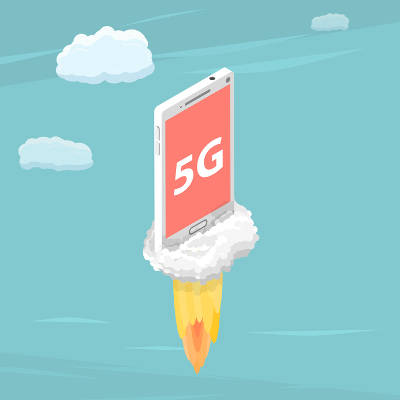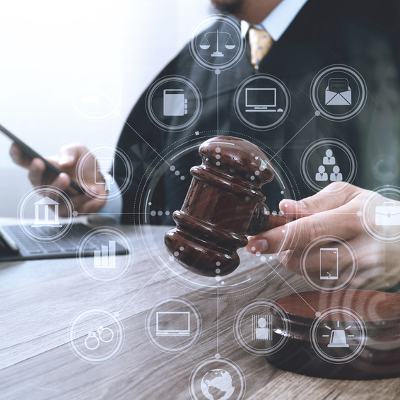Understanding 5G Helps Highlight its Benefits

You’ve heard of 3G and 4G technology for your mobile devices, but have you ever stopped to consider what these phrases actually mean? Since the world is on the cusp of a 5G introduction, it’s time to take a look at what these wireless technologies do, and how 5G can further expand on its formula.
Understanding 5G Helps Highlight its Benefits

You’ve heard of 3G and 4G technology for your mobile devices, but have you ever stopped to consider what these phrases actually mean? Since the world is on the cusp of a 5G introduction, it’s time to take a look at what these wireless technologies do, and how 5G can further expand on its formula.
Even though 5G isn’t expected to arrive until at least 2020, it’s worth taking a look at what we can expect to see in the future, and how it will affect your business.
What Does 5G Stand For?
If you’re thinking that 5G stands for something elaborate, think again. All it stands for is “fifth generation,” of mobile connection, as defined according to the IEEE 802.11ac standard of broadband technology. It’s thought that 5G will take various aspects of connectivity to the next level, including user experience, enhanced services, system performance, and business management solutions. According to TechWorld, 5G must also achieve the following in order to even earn the title:
- One to 10Gbps connections to end points in the field
- One millisecond end-to-end round trip delay
- 1000x bandwidth per unit area
- 10 to 100x number of connected devices
- (Perception of) 99.999 percent availability
- (Perception of) 100 percent coverage
- 90 percent reduction in network energy usage
- Up to ten-year battery life for low power, machine-type devices
For reference, 3G and 4G also had their own unique improvements that allowed them to showcase how far mobile technology had come at the time. 3G focused on providing greater connectivity than ever before, whereas 4G worked hard to improve the speed at which this connectivity functioned. But 5G will be even faster, which makes it an even more exciting topic to consider for business, as well as consumer purposes.
The Downside
Despite the overwhelming advantages of 5G, there will inevitably be some downfalls that will need to be considered. Like any new technology, 5G is expected to be somewhat expensive to implement upon its inception, but this price will surely decrease as time goes on. New devices manufactured with 5G in mind will also feel the effects of this cost, making them more costly to pick up, but resilient to the effects of time as older connections grow outdated. Furthermore, if one thing is for sure, there are still places in the world that are without a reliable connection to 3G or 4G, making the jump to 5G all the more daunting.
Thankfully, there is much industry support behind the implementation of 5G, even though it’s still in development. Big names such as Samsung, Nokia, and Qualcomm are already investing in 5G, so it’s only a matter of time before they put together something truly astounding for people all over the world.
Keeping all of this in mind, how will your business use 5G when it finally becomes available? You should always consult Catalyst Technology Group before investing in any new technology. To learn more, give us a call at (317) 705-0333.
Understanding Data Breaches Is The First Step To Stopping Them

Since the very beginning of the year, over 10 million personal records have been lost or stolen on a daily basis. As a result, chances are high that you or someone you know has been victimized by a data breach. However, since many individuals and businesses are never notified, they may have incorrectly come to the conclusion that they are not at risk. This, unfortunately, is not the case.
In actuality, there is a considerably good chance that your personal information has already been compromised–but the company responsible for losing your information wasn’t required to inform you. This is just one reason why it is critical to understand your rights as outlined in data breach laws. Do you know what information is considered ‘personal’? How many loopholes could a company have used to avoid notifying you of the breach?
Legal Definition of Personal Information
Each state has its own laws that govern how businesses must respond to a data breach, and while there is a consensus on the basic responsibilities these organizations have once data is accessed without permission, there are differentiating opinions on what constitutes personal information. Two qualifications most jurisdictions agree on are:
- First name or first initial and last name
AND - One or more of the following elements: social security number, driver’s license or state ID number, finance account numbers.
Some states choose to go a step further than this by only considering accounts secured with a PIN or password as being worthy of notification. For example, if your debit card number was stolen, the business that let it happen doesn’t need to contact you unless both the number AND the pin were compromised.
In states that have a more advanced view of data security, such as North Carolina and Nebraska, they include biometric information as part of their personal information considerations. Other states, like Missouri, have specific laws on the books that limit the legal portability that is inherent in the overreaching statutes.
Since the majority of health and medical data is protected under the federal Healthcare Insurance Portability and Accountability Act (HIPAA), only a few states include this information in their definition of personal information.
Additionally, some state laws state a limit of personal information a company can have compromised before having to contact their state’s attorney general’s office. This number is variable, but most states agree that anything over 1,000-to-5,000 files lost constitute an offense in which reporting becomes necessary.
Currently, however, the statutes on the books are biased to protect organizations from individual legal reprisals. Qualifications that protect corporate interests include:
- Encryption: Many states have deliberately put in specific language to protect corporations if information was encrypted by an organization, stolen, and decrypted afterwards. This also goes for redacted information. If it was found that a business worked to secure the data, no breach notification would be necessary.
- Questionable non-personal information: In various states, questionable information can be included as non-personal information. One example is the last four digits of a person’s social security number. Since the whole number’s integrity remains intact, the organization would not have to file it as having been compromised with the state’s A.G.
- Good-faith acquisitions: Most states list “good faith acquisitions” as exemptions from standing data breach statutes. A ‘good faith acquisition’ is defined as an event where data is lost or compromised by people employed by the organization where an individual works, or had a working relationship with (like a vendor). Since a co-worker, superior, or vendor is not as likely to misuse or lose personal information, no breach notification is necessary if the event meets this very subjective ‘good faith’ requirement.
- Risk of harm analysis: Around half of U.S. states have laws that allow an information-holding entity to run a ‘Risk of Harm’ analysis to quantify the risk any compromised personal information has in regards to its use by another party, or potential abuse that information could have in unauthorized transactions. If they find that risk from harm is minimal, the organization doesn’t need to notify parties involved.
The fact is that a data breach, regardless of the circumstances surrounding it, can be completely categorized as a negative event. Call the IT professionals at Catalyst Technology Group to find out how we can proactively manage your network to keep threats from affecting your data. Call us today at (317) 705-0333.

